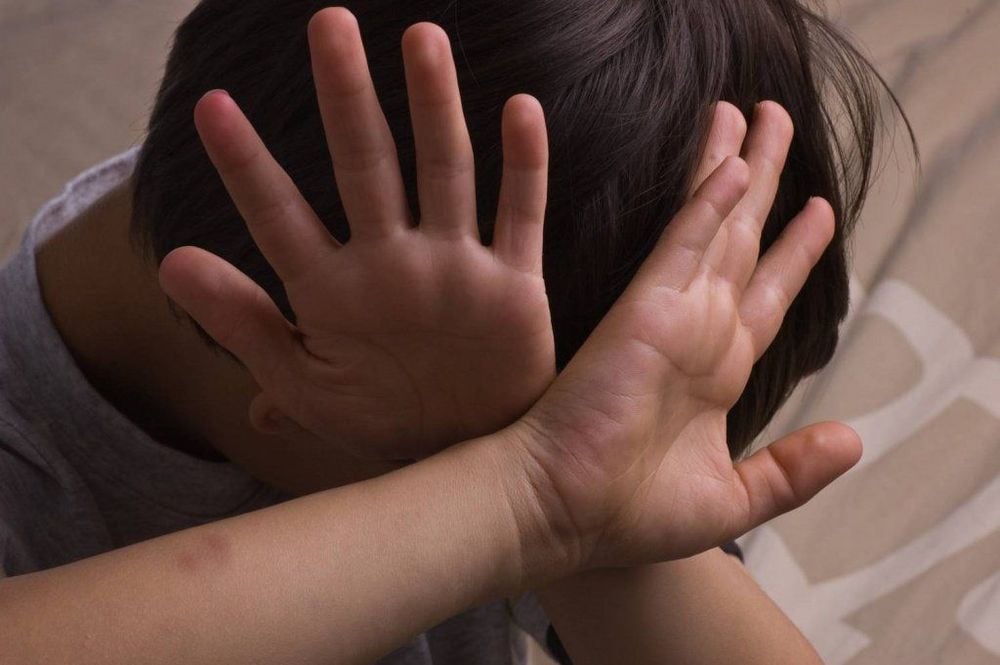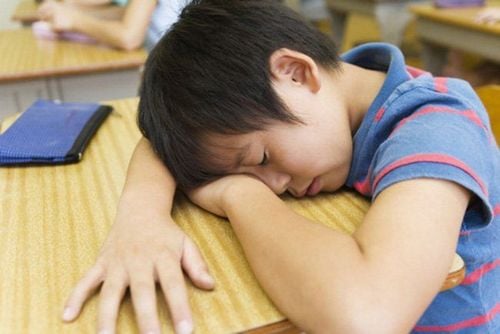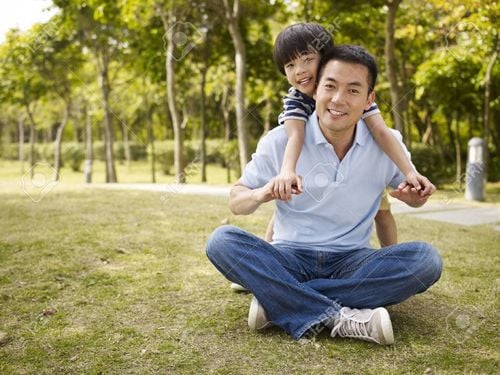This is an automatically translated article.
The article was written by Psychologist Unit of Regenerative Medicine Clinic and Educational Psychology
The American Psychiatric Association (APA) defines trauma (trauma) as: An individual who experiences or witnesses an event that causes death, is in danger of death, or causes serious injury or threat to integrity. physical aspects of the individual or of others. An individual's response to a state of stress, intense fear, hopelessness, helplessness, or terror.
1. How is psychological trauma in children expressed?
For children, the response involves disorganized or agitated behavior. In which:
+ Immediate reaction : The most common are shock and denial.
+ Long-term reactions : Includes unannounced emotional reactions, flashbacks, obsessions, tension in relationships and physical problems such as headaches, nausea...
Traumatic A psychological outcome is the result of experiencing a stressful or life-threatening situation that causes the individual to experience emotional and physical overload and has long-lasting effects and consequences on various aspects of life. physical, emotional, social, mental or spiritual aspects.” The three basic elements of trauma: traumatic situation, personal experience, and impact. Traumatic Situation: An event outside of normal human experience that is threatening and toxic in nature.
+ Personal Experience : Stress response and involves fear, disgust, helplessness, hopelessness, overwhelm, beyond the capacity of the average person to cope (overload).
+ Impact: Diverse and lasting consequences on all aspects and functions of human life: physical, cognitive, emotional, behavioral, spiritual, social relationships

2. Types of trauma
Acute - Chronic Trauma Single - Complex Trauma Historical Trauma Contagious - Secondary Traumatic Traumatic Trauma Post-Traumatic Stress Syndrome (PTSD) Developmental Trauma Other types of trauma How common is trauma:
Most people have experienced trauma exposure. No one is immune to trauma. The degree of impact and impact of trauma on each individual is different. Everyone's resilience and resilience is different. Trauma is a personal experience, so what influences a person's response to a traumatic event? Some of the causes can be listed as follows:
Characteristics of the traumatic event Developmental stage Personal characteristics Past and present functional performance Recovery and support resources Culture Image awareness received support after experiencing a traumatic event For children, parents' reactions have a great influence on children's experiences and reactions.

3. Mechanism of psychophysiological response to trauma
When trauma occurs, the brain will stimulate the activity of the amygdala such as increased secretion of the hormones cortisol and adrenaline; stimulates the activity of the sympathetic nervous system, at this time the battle - change - paralysis mechanism will occur in the brain.
Trauma can affect every aspect of a person's life, and without proper treatment and support it can have negative effects for the rest of one's life.
4. Characteristic manifestations and symptoms of psychological trauma
Manifestations of psychological trauma
Physical : Excessive vigilance, always looking for signs of danger; Easily startled; Fatigue/exhaustion; Restless sleep; Cognitive pain and pain: Thoughts and memories of the event (even if not wanted), Visualization of the event, Nightmares, Poor concentration and memory, Disorientation, Confusion. Behavioral: Avoidance of places and activities reminiscent of the traumatic event, Avoidance of contact or social isolation, Loss of interest in daily activities. Emotions: Fear, Paralysis or detachment, Depression, Guilt, Anger and excitability, Anxiety and panic Common post-traumatic reactions in children
Vulnerability, fear fear, anxiety; Strong intrusive memories; Sleep disorders; Guilt/self-humiliation; Avoidance behavior; Difficulty concentrating; Angered; Sad; body reaction; Regressive; Play and “re-enact” the traumatic event; Connectivity and social inclusion issues; Changes in meaning and value. Children experience trauma, which in the long run will affect:
Personality, child development; Beliefs about catastrophic worldviews; Interpersonal relationships; Moral development; Biological development; Self-awareness; Self-confidence; Ability to cope; Ability of study; Career options and career functions; The possibility of becoming a parent in the future.

Trauma is a personal experience, there are situations that may be normal for one person but are traumatic for another. Therefore, it is necessary to be examined and psychologically treated as well as have timely forms of support.
Caring, protecting and nurturing children is a long process, so parents should be a companion to help children develop their physical and mental abilities well. If you notice that your child has unusual signs for his age or has difficulties in taking care of and teaching him or her, you can go to Vinmec International General Hospital to get help from doctors and nurses. Psychologists.
Please dial HOTLINE for more information or register for an appointment HERE. Download MyVinmec app to make appointments faster and to manage your bookings easily.













